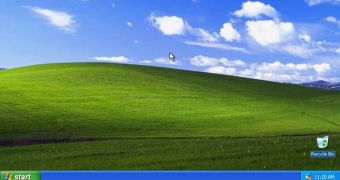Windows XP support officially reached end of support on April 8, so Microsoft promised that the operating system launched nearly 13 years ago would no longer receive updates and security patches.
The company, however, broke its promise this week, when it rolled out another security fix for Windows XP, as it wanted to resolve an Internet Explorer zero-day flaw that would allow attackers to get the same privileges as the logged-in users have.
Although such a decision could make users believe that Windows XP might actually get patched forever, whenever a new critical security vulnerability is found, Microsoft guarantees that this is the last time that it rolled out fixes for this particular OS version and recommended everyone to upgrade as soon as possible.
One of the reasons why it decided to patch Windows XP is the big number of users still running it, and Microsoft says that they need to remain secure, as many are yet to complete the complete the switch to another operating system.
Security experts claim that Microsoft's move to fix Windows XP is a smart decision because it still needs to show users that it cares about them, especially taken into account the fact that company actually fixed a flaw that was already being exploited out there.
“While it is somewhat unprecedented that Microsoft would release a patch for a product they no longer support, it is not surprising in this circumstance, given the severity of the CVE-2014-1776 vulnerability, the fact that it was being exploited in the wild and that it was detected just as Windows XP entered retirement helps to explain Microsoft’s reasoning,” ESET’s Aryeh Goretsky explained.
“Out of band patches from Microsoft are rare and only issued in the most severe circumstances. Given, that, I strongly recommend sysadmins test and apply the patch as soon as possible on the computers they manage.”
Windows XP is still powering 26 percent of the desktop PCs worldwide, but figures are expected to drop significantly in the coming months, as more large companies and organizations across the world are completing the transition to newer platforms. Of course, Microsoft still hopes that everyone would eventually move to Windows 8.1, but the high costs of the process, which often involve hardware upgrades as well, are a major setback for a large share of those still on XP.
It remains to be seen what will happen on May 13, when Microsoft is projected to release this month's Patch Tuesday updates that could also include some fixes for Windows XP.

 14 DAY TRIAL //
14 DAY TRIAL //